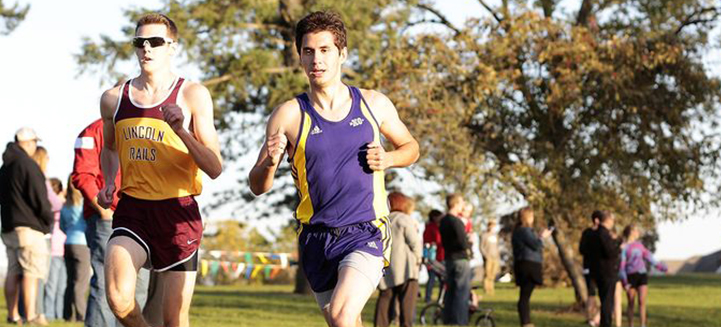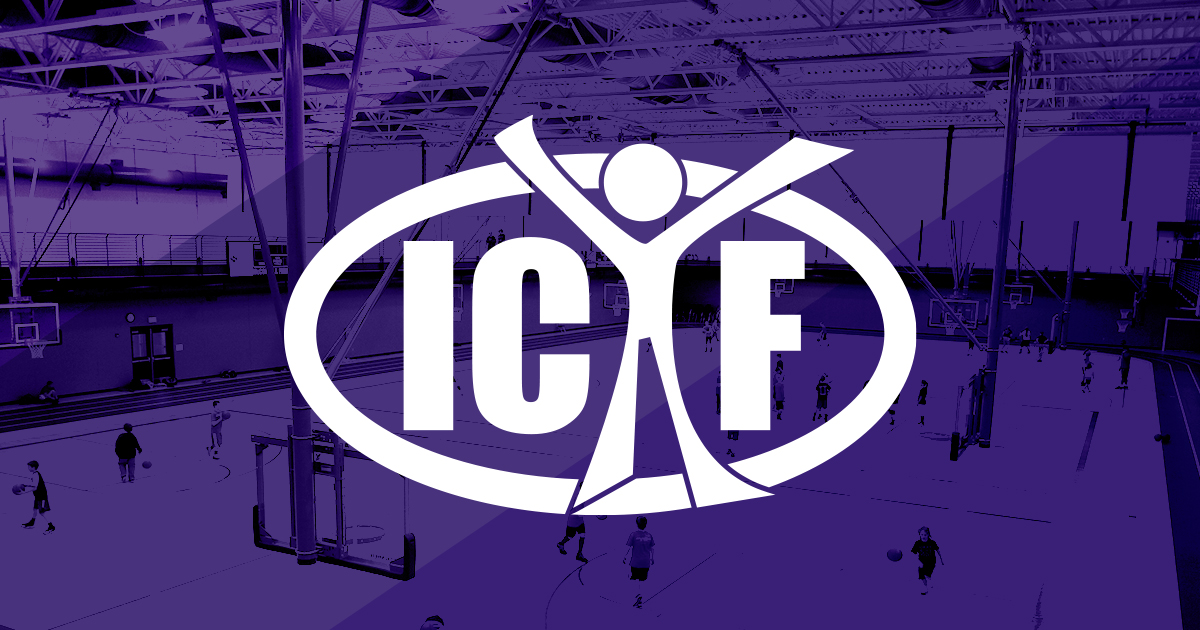CROSS COUNTRY
Cross country runners are diverse athletes that require focused training with a high strength-to-weight ratio. Cross country athletes often train for hours at a time to improve VO2max and aerobic capacity while also partaking in resistance and speed training. A high level of nutrition specialization is needed for successful cross country runners to balance nutrient timing and meet one’s energy demands while maintaining a strong and lean physique.
Jennifer DeWall RDN, CSSD, LD
Jennifer works with ICYF to provide expert advice on sports nutrition and healthy eating to the student and families of Indianola. A registered dietitian/nutritionist, Jennifer owns a private practice that focuses on helping athletes stay on the cutting edge with superior nutrition.
Nutrition Recommendations for Cross Country Runners
Consume energy dense nutritious meals.
This is best achieved by including a wide variety of nutrient- dense carbohydrate sources into meals and snacks. Carbohydrate rich foods include: pasta, rice, low sugar cereals, bagels, breads, flat bread, sports bars, fruit, starchy vegetables (potatoes, sweet potatoes, corn, beets, peas) and low-fat dairy products.
Due to the high energy demands and high strength-to-weight ratio of cross country runners, there is little room for high-fat, high-sugar foods. Clean eating is critical to improving your personal-best times. Fried foods, soda, candy and packaged cakes and cookies should be limited, if not avoided.
Focus carbohydrate-rich foods around trainings
Time snack and carbohydrate intake appropriately before and after trainings to maximize performance and promote faster recovery without added calories. A list of snack ideas before training can be found on the ICYF “On the Go Snacks for Athletes” guide.
The amount of food you consume is based on your body weight and how close you are to the start of your training. As trainings lasting longer than 60 minutes get closer, meal/snack size should decrease whereas larger meals should be consumed if eating 3-4 hours beforehand. As a general guide for every hour before training, consume 1 gram of carbohydrate per kilogram of bodyweight up to four hours in advance.
| Hours before Training | Grams of carbohydrate to consume for a 140-pound athlete |
|---|---|
| 3-4 | 200 grams – pasta with meat sauce, bread, salad, milk |
| 2-3 | 150 grams – ham sandwich on bagel, banana, 100% juice |
| 1 | 64 grams – sports drink, fig bar or cereal bar |
Trust your gut before competition
Due to the nature of your competitions, it may not be critical to have a snack before race time. Think about when you last ate. If it’s been more than 3-4 hours, a small snack would more than likely benefit you. Pick a snack that is high in carbohydrates and low in fiber and fat. This blend of macronutrients will facilitate gastric emptying and fuel utilization. A list of snacks can be found on the ICYF “On the Go Snacks for Athletes” guide. Please note, these are snacks to consume before training – your pre-event snack may be smaller.
STAY HYDRATED
Hydration before, during and after training and game-time should be well planned, especially given the typical summertime climate. Drinking large amounts of water in the minutes beforehand is not an optimal way to hydrate and can leave you with a “sloshy” stomach in the opening minutes of play. Dehydration (2-3% loss in body weight (1) or just a bit over 3 pounds for a 165-pound player) can slow pace and decrease reaction time. Players should sip small amounts of fluid during training and regularly throughout the day.

HYDRATION TIPS
• Start hydrating about 4 hours before practice or competitions so that you are able to excrete any excess fluid as urine before you compete.
• If you are training for 60+ minutes, sip 4-6 ounces fluid every 15 minutes. A sports drink may be necessary.
• On days where you are training intensely, for every pound lost, replace with 24 ounces of fluid.
• Carry a water bottle with you during the day to help achieve your fluid goals. One sip of water is equal to about 1 ounce.
Hydration during practices and games is also critical. If you are playing for more than 60 minutes then a sports beverage may be needed. Sports beverages can allow you to keep your blood sugar levels within normal limits to allow for immediate energy and split-second decision making. Your brain relies on glucose for its primary fuel source. Without (glucose,) your blood sugar can drop and cause impaired mental acuity.
In order to play at your optimal level, clean eating, a healthy weight and hydration are your secret weapons to winning. For more information or a personalized plan, work with a registered dietitian/nutritionist that is board certified in sports dietetics.
References
2. Dunford, Marie. Sports Nutrition. A Practical Manual for Professionals. 4th Edition. American Dietetic Association, 2006.
3. Position of the American Dietetic Association, Dietitians of Canada, and the American College of Sports Medicine: Nutrition and Athletic Performance. Journal of the American Dietetic Association, March 2009, Volume 109 Number 3 p. 509-522.
Maintain optimal iron status
Cross country runners, mainly female, can be at risk for low iron status. Low iron levels are detrimental to performance and can cause decreased aerobic capacity, diminished exercise endurance, decreased VO2max and decreased production of ATP in skeletal muscle (2). Consume iron-rich foods daily to decrease risk. Iron-rich foods include: beans, iron-fortified breakfast cereals (Cream of Wheat, Raisin Bran, Frosted mini wheat, Cheerios,) iron- fortified breads, iron-rich pasta (Barilla Plus,) red meat, raisins, dried apricots and pretzels. An iron supplement in the form of ferrous sulfate may be necessary. Low iron levels can STILL affect performance without having iron-deficiency anemia. Reduced iron levels can be assessed by a physician checking your serum ferritin level. (3)
Tips for Increasing Iron through Food
Eat foods high in Vitamin C with iron-rich foods to promote better iron absorption. Examples include
- Mixing iron fortified breakfast cereal with dried fruit in a baggie for a grab and go breakfast. Have with 100% orange juice.
- Eat pretzels with fresh strawberries for a snack.
- Use iron fortified bread to make a sandwich. Add green or red pepper slices and tomato.

